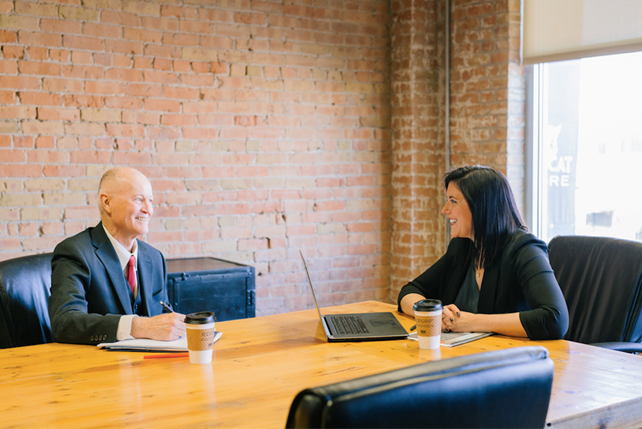Remote working: a Covid setback or the future?
October 21, 2022 2:22 pmRemote working: a Covid setback or the future?
Covid brought about many difficulties and changes to the way in which we live our lives. From an increased awareness of the importance of hygiene to a higher emphasis on the value of human interaction, many elements of daily life, previously taken for granted, had to be re-evaluated and revised. For the world of work, lockdown shook the commuter’s daily routine to the core and threw them into the age of remote working. However, whilst the pandemic forced this phenomenon, many companies and businesses have adopted this new mode of work and, as the world has emerged from lockdown, they have chosen to move out of their office blocks, some for good. There are undeniably arguments on both sides as to the efficacy of the remote-working era, but could this be the future?

One thing that workers have delighted in is the flexibility that online working brings. Gone are the days of the packed commuter train, the heaving metro, the wrestling match along the overcrowded street. The coronavirus commute of simply rolling out of bed to a desk, perhaps via the fridge on the way, came as a welcome relief for many, particularly those commuting from further afield. Lunchbreaks facilitate an opportunity to tend to the garden or show off pets on Zoom, and the hours saved from commuting can be used for some much-needed rest and recuperation. Indeed, the elimination of the commute works out to be more beneficial than ever previously conceived; employees don’t have to pay for travel, and employers don’t have to pay rent for offices. The necessity to relocate has also disappeared – it now doesn’t matter where you live, as long as you have access to the internet. This in turn gives employers a larger talent pool, and opens up opportunities for workers anywhere in the world, no matter the location. Employers even suggest that productivity levels increase with the online office. So, with so many positives, why haven’t all companies opted for remote working going forward? On paper, remote working seems like the commuter’s dream; the amount of money saved, the flexibility to work from anywhere, time saved to be used for other interests…what could be better?
When considering these assets on the drawing board, it is easy to overlook the inconveniences of working from home: potential suboptimal Wi-Fi comes with extra costs to secure a fast connection, interpersonal skills are forgotten and lost, collaboration is harder to effectuate. However, there are hindrances too, namely concerning one of the fundamental human characteristics: the need for social interaction. Once this is considered, the remote-working rose-tinted lens turns more greyscale. Whilst some alone-time does come as a respite, what happens when this is week-long, month-long, even year-long?
Research conducted before the pandemic by The University of Manchester Chartered Occupational Psychologist, Dr Lynn Holdsworth, found that full-time remote work increases loneliness by 67%. Now looking at during the pandemic, where a much larger pool of the population was working online, a survey in the US and UK revealed that 67% of workers aged 18-34 found it harder to maintain friendships and relationships with work colleagues, 71% expressed concern about colleagues distancing themselves, and 54% put the blame on remote working for issues of drifting apart. 81% stated that they were worried about loneliness. It is evident that online working is a key contributor to the Loneliness Epidemic, but what does this actually mean for companies and businesses?
There is a strong correlation between loneliness and higher rates of depression, as well as anxiety and suicide. Symptoms of depression include poor concentration, disrupted sleep and fatigue, amongst others. So, while there’s the opportunity for that extra hour in bed, is an unhappy workforce going to be that better rested? And if concentration levels decrease with loneliness, is productivity really that much improved with remote working in the long-term? Interestingly, a European survey found that, despite only 19% of employers reporting a decrease in activity, 65% of employers do not trust their employees to work remotely. Such a high rate of distrust creates a vicious cycle – a lack of trust in any relationship creates feelings of unhappiness, which in turn becomes isolating, and so on and so forth.
Although one might argue that, as the Holdsworth survey was conducted amongst young people, its findings are not representative of the whole working population, if remote working is to become a reality going forward, it will be this generation that experiences it. If the future of the workforce finds isolation so worrying, is remote working sustainable for the future?
All pros and cons considered, one thing is certain: in a remote-working world, graduates and employees of the future won’t be able to benefit from shadowing schemes and work experience in the same way, be that down to logistics, technology, or whatever else. So much can be learnt from simply observing an office in activity, from subtle business practices to etiquette, and without these experiences it makes it harder for this younger generation to gain the experience that allowed current workers to get their jobs. Especially now, where the competition for jobs and graduate schemes is so high, it is vital for these young people to be able to experience the working world to even be considered for these. So, while remote working brings benefits of cost and flexibility, is it really sustainable for the future when the current generation of workers retires?
Hybrid working offers a good solution to this problem, at least as an interim. Commuters are still able to save on travel and have the flexibility of choosing where and when to work. The company, despite paying rent for an office space, can save money by downsizing – with people working remotely on different days, not everyone will be in the office at the same time. Coworking spaces, such as WeWork, also present themselves as a suitable substitute. Although it may be more challenging for employees from further afield to get into the office for in-person working days, compromises can be made, and while it comes with travel or hotel expenses, the overall cost is reduced in comparison to fully in-person working. Concerning loneliness, it gives employees the option of collaboration and human contact during working hours. Since being allowed to return to the office, a UK study stated that 48% of workers experienced improved mental health, and many of these circumstances will have been in a hybrid capacity. Hybrid working strikes an economical balance of time and money whilst giving employees contact with the world outside of the screen.
Now that the world is rebuilding itself from the shackles of lockdown, it will be interesting to see whether remote-working will remain a thing of the Covid-19 era, or whether it will affect generations to come. A London survey conducted in 2021 found that only 30% of businesses expect to have their workforce fully back on site before 2023, with 41% stating that they will have adopted a hybrid format. Will this be the future of working? Only time will tell.











